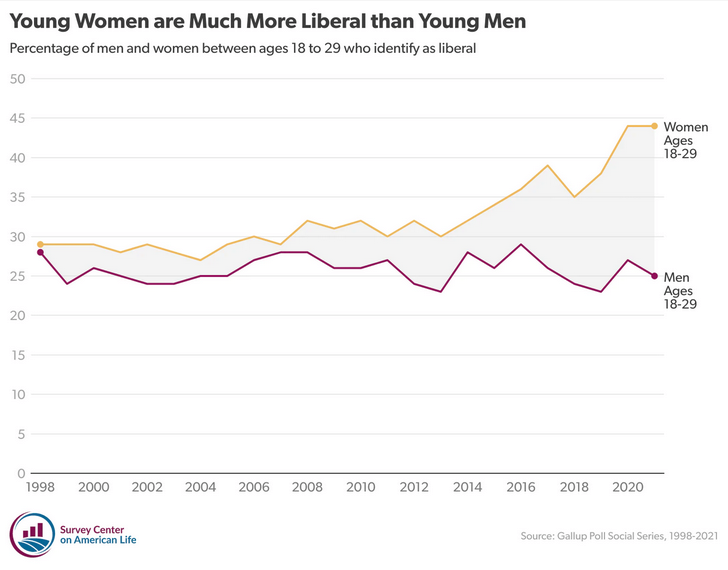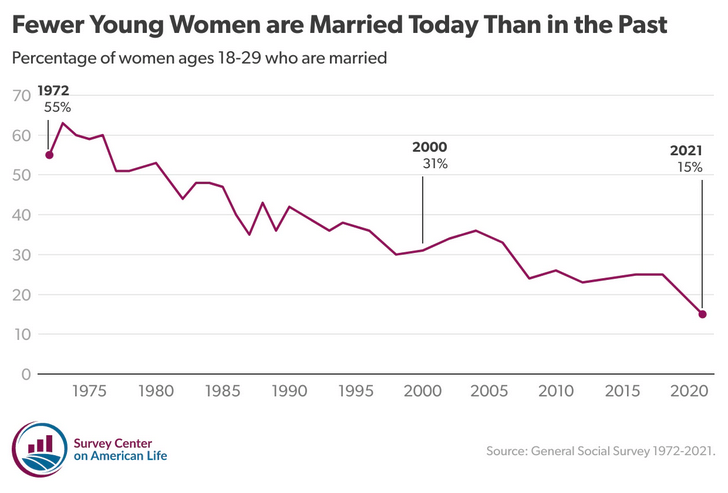Daniel Cox looks at the noted shift in political opinions among young women (aged 18-29) compared to their male counterparts, and not just on the current hot-button topic of abortion rights:
… In fact, young women have become significantly more liberal over the past decade whereas the political identity of young men has remained largely unchanged over time.
Rise of Unmarried Women
There are a few reasons for the increasingly liberal politics of young women. One explanation may lie in their marital status. Compared to previous generations of young women, far more women under the age of 30 today are unmarried. Only 15 percent of young women today are married compared to more than one-third of young women two decades ago.
Why does this matter? Research has shown that unmarried women feel more connected than their married counterparts to other women — a phenomenon known as “linked fate” — and it can lead them to support more liberal policies. In their fascinating 2017 study, Christopher T. Stout, Kelsy Kretschmer, and Leah Ruppanner argue that “women consistently earn less money and hold less power, which fosters women’s economic dependency on men. Thus, it is within married women’s interests to support policies and politicians who protect their husbands and improve their status.” This phenomenon of “linked fate” was not found to be evident among men, so even though young men are also less likely to be married compared to older generations, their marital status may have less of an impact on their politics than for women.
The Growing Education Divide
Over the past several decades, women’s educational attainment has far outpaced that of men’s; “Women in the United States have earned more bachelor’s degrees than men every year since the mid-1980s”, writes Derek Thompson in the Atlantic.
American colleges and universities now enroll roughly six women for every four men. This is the largest female-male gender gap in the history of higher education, and it’s getting wider.
The education divide between men and women has become more politically relevant because of the stronger connection between educational attainment and political behavior. In recent elections, college graduates have become a much more loyal Democratic constituency. And on a range of issues, college-educated Americans are more liberal than those without a Bachelor’s degree.





